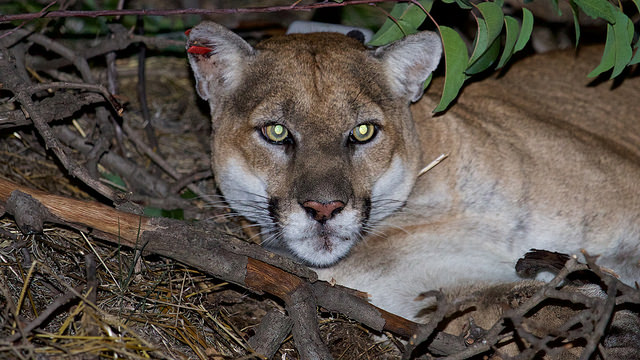Angela W. Gilbert
Carina is born four weeks early under the shade of a California Lilac on the side of a fire road in the Santa Monica Mountains. Her father and mother were lost coming back from a picnic in the canyons, a hike her mother insisted on taking.
“It’s our babymoon,” Anastasia said. “I will do what I like. “When Carina comes out headfirst, her eyes connect with a cougar on the other side of the brush, taking in the scene as she feeds her own cubs milk. Soon, when Carina’s father steps too close to the litter, they’ll have their first taste of meat.
Anastasia blames herself for Archibald’s vicious death. She blames the hike, she blames the hospital, she blames Carina. Anastasia withdraws. She goes indoors, she looks at nature only through the windows, and leaves Carina in the care of the nanny, who isn’t paid enough. The nanny takes a side gig walking dogs. When Carina smells Doberman on her, the attack is swift –she pulls up her dress and pees all over the nanny’s shoes, then runs out the door into the street. Carina stops in the neighbor’s yard and crawls under a bush. She stays there, teeth clenched, for hours.
In school, while a great student, she lacked the social constructs of other children. When she wanted attention, she would sidle up to them, she would lean her head into their bodies, she would paw at their arms until they turned. If they didn’t turn, she would bite them.
The principal was at a loss. But Lanice, the vice principal, having loved a cat lady herself, began to suspect.
Carina was, for all her faults, a striking figure. Even when she was biting you. Her eyes were green, her hair bright red, her skin pale, and her canine teeth sharp. Anastasia could never keep an emery board in the house, and was certain the maid was taking them.
In the basement, where her mother never went, because her mother never went anywhere, Carina gathered her sisters. She laid traps for mice. She called in the feral cats from the lot down the street, and they came in packs out from under the lantana bushes. In the basement, they groomed each other and tossed around a mouse for hours.
Most astonishing was that she never smelled of ammonia. Lavender, she found, was the only thing capable of drowning out the underscent of cat urine.
Carina’s teachers were perplexed. They would recommend she apply herself. They were often clawed for their troubles. Anastasia began to bring peroxide and bandages to parent-teacher conferences.
Finally, Anastasia sought her daughter out in the house. She found her way to the basement, where Carina sat with the feral neighborhood cats and a few outdoor cats from the next street over, who hadn’t gone home in a week and were on flyers around the block. Carina’s eyes narrowed, and her compatriots stormed toward Anastasia, small and human in the basement door. She ran, terrified and ashamed that she was running from a small army of ten-pound tortoiseshell cats. But she didn’t stop running.
Carina found herself alone. She suspected her mother wouldn’t return. She smoothed her hair with the back of her hand and tried to remember how to use a can opener. She gave up and threw a jar of anchovies on the floor, picking out the glass and the bones.
At school, they began to ask “How are things at home?” or “Is there anything you need to talk about?” and Carina would turn her head away.
In her office one afternoon, the vice principal heard distinct scratching behind the wall. Down on all fours, listening hard, Lanice pried off the heat register and peered into the air vent. Despite the low rumble she heard inside, the vice principal reached her hand in. She kept her hand open, palm down, fingers slightly curled. She tapped and scratched at the air vent, patiently.
Lanice was soon rewarded with the tap of a cold nose against her knuckles and turned her palm upwards—an invitation to smell. When she felt greasy strands of hair in her grip, she grasped on to the neck of the young girl and pulled slowly, keeping her grip despite Carina’s teeth embedded in her wrist, both of them determined to never release their grasp.
Angela W. Gilbert began her writing journey in rural Georgia as the eldest of four girls. After studying Writing, Literature, Publishing and Film at Emerson College in Boston, she made her home in Los Angeles, where she spends her days developing children’s television and her nights writing for a slightly older audience. Thanks to the support and critiques of her writers’ group, her spouse, and his semi-feral cat, P24 will be her first published piece of fiction. She can sometimes be found on twitter at @ahaloed.

